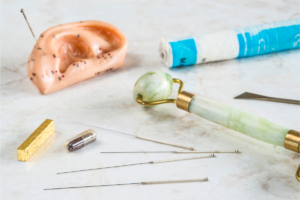Regardless of the fact that acupuncture has been practised for thousands of years, it is nevertheless controversial, there are many myths surrounding the practice. Acupuncture therapy is based on the idea that qi or vital energy flows through a network of channels and vessels in your body. When this flow becomes blocked, there’s an imbalance.
Acupuncture treatment works to stimulate these meridians by inserting very thin needles into specific points along them to help unblock the blockages and restore balance where needed. Acupuncture is one of the fastest-growing fields of alternative medicine and is often covered by health insurance plans. Here are eight misconceptions that people have about it, and see how it treats with your body.
-
No Scientific Basis
Acupuncture is an alternative medicine, but peer-reviewed studies have shown that it does indeed reduce a patient’s level of pain.
Read More: Acupuncture and Fertility-Can Acupuncture help with Fertility?
-
Needles are not Safe
This myth is based on the incorrect assumption that acupuncture needles are unsanitary. Acupuncture needles come in packages designed for safety and efficiency. These needles are never reused. After using them for a patient, they are disposed of as medical waste. A dirty needle at the acupuncturist is just as dangerous as a dirty needle used in a shot at the dentist. Treatments with acupuncture are needed on a daily basis in order to function.
-
Acupuncture is Painful
Acupuncture typically doesn’t cause any pain. Some patients report feeling a slight pinch upon needle application, less than that of the typical injection at a doctor’s office. Acupuncture treatments work to relax your body while also restoring balance. Neither intense nor painful methods will be effective in themselves but may come into play as part of an all-inclusive treatment plan with the rest of the components.
-
Acupuncture and Traditional Chinese medicine can be largely the same.
Acupuncture is an independent field of study outside the scope of traditional Chinese medicine, though it’s still founded in principles and practices from that tradition.
Read More: Veterinarian Tips: The Importance of Heartworm Prevention
-
Acupuncture sessions last a long time, reducing the number of sessions you have.
The typical acupuncture session lasts thirty minutes to one hour. This includes the pre-acupuncture examination and diagnosis as well as making a treatment plan ready for you.
-
Acupuncture treatment needs to be done every day for it to work.
Patients are unique, and the treatment they need will vary. Some patients take daily treatment, but most only require a weekly or monthly series of acupuncture therapies. Individuals that need continual sessions are rare and typically the sessions are only for a brief period of time until the particular issue is fixed.
-
The Needles are Long
Acupuncture needles are available in a range of sizes, with lengths ranging from about ¼” to over 1”. The typical hypodermic needle is more than a half-inch in length and many times thicker than the acupuncture needle.
-
Anyone Can be an Acupuncturist
Practicing as an acupuncturist requires a rigorous licensing procedure which can take up to four years of coursework and over 1,000 hours of clinical training before you can submit for licensure. Acupuncturists often have their training in university. Once licenses, they need to attend continuing education courses and meet the safety and ethical standards of their profession to maintain their license. Acupuncture practitioners are within the health care community.

